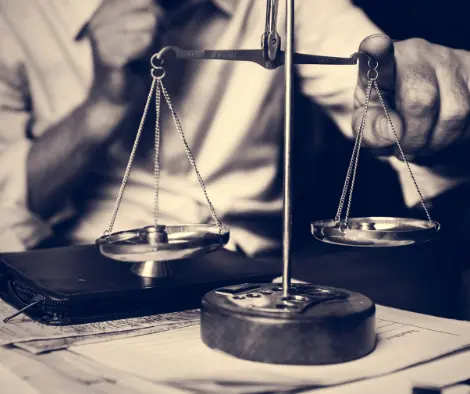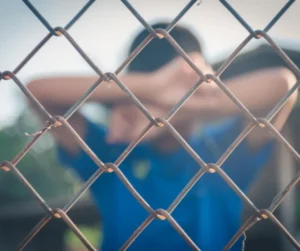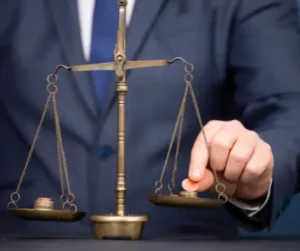

The Uphill Battle of an Appeal
Imagine a marathon runner collapsing just before the finish line. They trained hard and put in the effort, but something went wrong. In the legal world, a wrongful conviction feels just like that—a case that didn’t end as expected. But unlike a race, the justice system offers another chance: an appeal. The appeals process allows individuals to challenge a conviction or sentence, offering a path toward potential post-conviction relief and, in some cases, complete exoneration.
Understanding the Appeals Process
An appeal is not a retrial. It doesn’t involve presenting new evidence or witnesses. Instead, it is a legal process in which a higher court reviews the decisions made in a lower court to determine if legal errors affect the outcome. These errors might include misinterpretations of the law, procedural mistakes, or ineffective assistance of counsel.
The Steps of an Appeal
- Filing a Notice of Appeal – A defendant must formally notify the court of their intent to appeal within a strict deadline, often 30 days after sentencing.
- Preparing the Appellate Brief – The defendant’s legal team compiles a detailed written argument explaining the errors that occurred in the trial and why a new trial or sentencing should be considered.
- Review by the Appellate Court – Judges review the legal arguments and trial records, sometimes allowing oral arguments.
- Issuing a Decision – The appellate court may affirm the conviction, reverse it, modify the sentence, or send the case back for a retrial.
This process can take months or even years, depending on the complexity of the case and the court’s backlog.
Appeals Lawyer: The Key to a Successful Appeal
Just as a surgeon is essential for a life-saving operation, an appeals lawyer is critical for a successful post-conviction challenge. Appeals require an attorney who is not just skilled in criminal law but also deeply knowledgeable about appellate procedures and legal precedents.
How an Appeals Lawyer Can Help
- Identifying Trial Errors – A s The appeal hinges on a well-argued legal document that highlights constitutional violations or procedural missteps.
- Oral Arguments – Some cases allow lawyers to argue in front of appellate judges, clarifying key points and answering questions that could sway the decision.
Studies show that ineffective legal representation is one of the leading causes of wrongful convictions. According to the National Registry of Exonerations, nearly 25% of overturned convictions are due to strong appeals lawyer examines court transcripts and records to identify mistakes that could warrant a reversal.
Drafting a Persuasive Brief –our defense strategies. Having a specialized appellate attorney increases the chances of a successful appeal.
Post-Conviction Relief: A Second Chance at Justice
For those who exhaust the appeals process without success, there are still options. Post-conviction relief allows defendants to challenge their convictions or sentences through different legal means beyond direct appeals.
Types of Post-Conviction Relief
- Habeas Corpus Petitions – If a conviction violates constitutional rights, the defendant can file a habeas corpus petition. This is often used when new evidence emerges or when legal representation is inadequate.
- Motion for a New Trial – If new evidence is found or significant procedural errors occur, a court may grant a new trial.
- Sentence Modification – If an original sentence is unjust or excessive, courts may reduce it.
- Expungement or Record Sealing – For certain cases, post-conviction relief may allow individuals to clear or restrict access to their criminal records.
Post-conviction relief has freed countless wrongfully convicted individuals. One well-known case is that of Steven Avery, who was exonerated after DNA evidence proved his innocence, years after his wrongful conviction.
Case Study: The Wrongful Conviction of John Thompson
To understand how the appeals process and post-conviction relief work in real life, let’s examine the case of John Thompson, a man wrongfully convicted of armed robbery and murder in Louisiana.
The Conviction
In 1985, Thompson was arrested and convicted based on witness testimony and circumstantial evidence. The prosecution withheld crucial evidence—a blood test proving Thompson was not at the crime scene. He was sentenced to death row.
The Appeal and Post-Conviction Relief
After 14 years in prison, Thompson’s appellate lawyers discovered the hidden evidence and filed for post-conviction relief. The case was reopened, the conviction was overturned, and Thompson was released in 2003. A jury later awarded him $14 million in damages for the miscarriage of justice.
Thompson’s story underscores the importance of appeals and post-conviction relief in correcting wrongful convictions and holding the justice system accountable.
Challenges in the Appeals Process
While appeals offer hope, they also present challenges. Courts operate under the assumption that trials are conducted fairly, meaning the burden is on the defendant to prove significant errors. Additionally, appeals can be costly, with legal fees, transcript costs, and filing expenses adding up.
Another hurdle is judicial reluctance to overturn convictions. Data from the Bureau of Justice Statistics shows that less than 7% of appeals lead to reversals, making it crucial for defendants to build the strongest case possible.
Conclusion
Navigating the appeals process can feel overwhelming, but understanding your legal options provides hope. Whether challenging a conviction, seeking post-conviction relief, or hiring an appeals lawyer, every step taken is a step toward justice. With the right legal representation and a thorough understanding of the system, a conviction doesn’t have to be the final chapter.
Frequently Asked Questions (FAQs)
- Can I introduce new evidence in an appeal?
No, appeals focus on legal errors from the original trial. New evidence must be presented through post-conviction relief methods like a habeas corpus petition. - How long does an appeal take?
It varies, but most appeals take between six months to two years. Complex cases can take even longer. - Can an appeal result in a harsher sentence?
While rare, an appellate court can modify a sentence, but typically, they reduce or uphold the original conviction rather than increase punishment. - What happens if my appeal is denied?
Defendants can explore other options, such as habeas corpus petitions, clemency requests, or seeking relief in federal court. - Is post-conviction relief only for the wrongly convicted?
No, it also applies to those who received excessive sentences, were victims of ineffective counsel, or had their constitutional rights violated.


